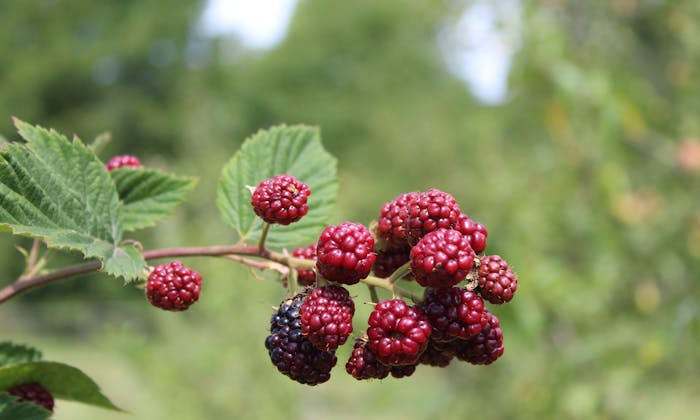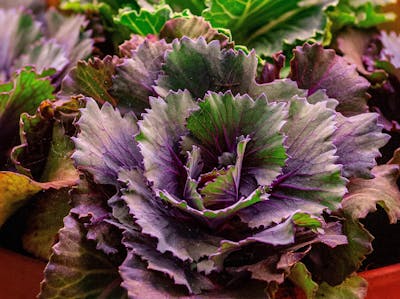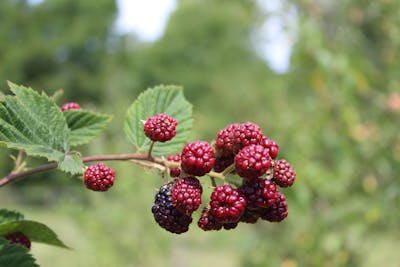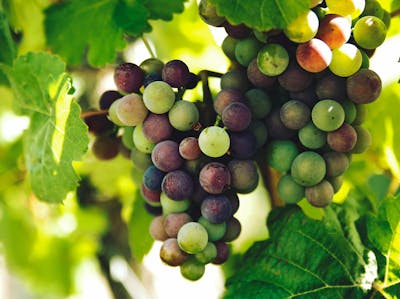Blackberries and Raspberries are a sweet, tart bundle of flavor.
Blackberries and raspberries have a mixed reputation. They grow so easily, especially in temperate parts of the US, they can easily get out of hand. However, if not cared for properly, they will not fruit or will fruit poorly.
The rubus family includes raspberries, blackberries, dewberries, and hybrids like the loganberry, olallieberry, boysenberry, marionberry, and tayberry. With their red tint and woody, thorny canes, is it any surprise these are part of the rose family (Rosaceaea)?
History and Characteristics
Both raspberries and blackberries have been known all over the Old World, with varieties found in Europe and throughout Asia. There are many, many cultivars out there, a sure sign of their importance in agriculture. Raspberries are eaten straight, or used in pies, jams, wines, and as a flavorant added Belgian beer, lambic, to make Framboise. Blackberries are used similarly.
But raspberries and blackberries are also native in the New World and have been an important food source here for thousands of years. The main difference between blackberries and raspberries is that when you pick a blackberry, the torus remains with the fruit. The torus is the tip of the stem. That is the reason raspberries have the curled in, hollow look at the top, and blackberries do not.
From smoothies, to jams and pies, here are a bunch of recipes by the North American Blackberry and Raspberry Association.
Growing Tips
I have a vague recollection of childhood books talking about "bramble patches," and not in a positive light. A bramble patch is literally a clustering of blackberry vines. When neglected, these vines become woody tangles of thorns that you do not want to get caught up in. My backyard came with a small sampling of one of these and I've been poked more times than I can count.
That is one reason why maintenance of these plants is essential. Another reason is, if you don't take care of them, you don't get any fruit! If you don't take care of them, your blackberries will still grow and multiply. You will get all of the negatives of this wonderful plant and miss out on the reward.
Blackberries will fruit best in rich soil. People who use fertilizer will add fertilizer in the early spring, to support the growth and ripening of fruit. They also require a consistent, moist soil. Blackberries also want lots of sunlight to produce sweet berries.
I have some blackberries that I grow in a pot alongside a small curry tree. Since they are in a pot, I make sure to water them frequently so this pairing works out very well. ;./The main disadvantage is that there is not a lot of space for the canes to spread out into, and therefore production is pretty low.
Pruning
In general, blackberries and raspberries fruit off of their second year canes. That means if you cut back all of your canes, you won't get any fruit for two years. Once a cane fruits, it starts to die off. It becomes woody and messy, so you definitely want to prune these.
When it comes to pruning, you can prune immediately after harvesting, but this is not ideal. Instead, it is best to let the canes start to dry out on their own before cutting. That way the nutrients stored in the cane are returned to plant and used by next year's canes.
The important thing to remember is, you will always have first year canes and second year canes. The second year canes are the ones that produce fruit, and these the ones you will cut back after fruiting.
However, there are nursery and agriculture cultivars that produce in one year. If you know you have one of these, then think of them all as second year canes. They will all produce and they should all be cut back annually.




